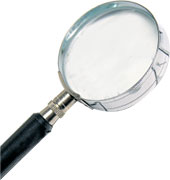 |
One man’s trash is another man’s treasure. Which explains why the future of search looks bright with more people going online and using Internet search engines as a database for instant information. The battle is set to get bigger as search is becoming more personalised and localised.
When people travel to a new place, “they want to know more user-friendly information like local electricians, how to get driving directions… that’s the challenge of having a database on the computer,” says Vinay Goel, product head, Google India. “They want more local content like restaurants, hotels and going a step ahead, even enhanced content like movie reviews.”
The Internet has also emerged as the biggest virtual social tool. “People like things that are social. Local news that also has a social context drives more usage on the Internet,” observes Goel. Which also explains why sites that offer user reviews often throw up more traffic than others, like movie, restaurant or hotel reviews.
In India, a mere three to four per cent of the population is online or “Internet-friendly”, two-thirds of which are users between 18-30 years. “That’s a very small number and we want that to increase,” says the product head.
The future of search also lies in languages other than English. Ninety-three per cent of India’s population does not have much to do with the Internet today because of language barriers, reveal studies. At Google.co.in, you can search in five different languages — Hindi, Bengali, Telugu, Marathi and Tamil. “There’s also a demand for Hindi words in English, the type of things Orkut-users want to scrap each other with,” says Goel.
And the next step ahead in terms of technology could see search engines turning voice-based in the near future.
While the most popular search engine for us in India is Google, other popular choices are MSN and Yahoo. Newer search engines like kooltorch.com have also sprung up and using some of them can be quite a refreshing change.
Another emerging option is a metacrawler. “Metacrawlers don’t crawl the web themselves to build listings. Instead, they allow searches to be sent to several search engines all at once. The results are then blended together onto one page,” says Goel.
Some cool metacrawlers and search engines:
KartOO.com: One thing that most search engines lack is visual appeal and KartOO.com scores with its striking interface.
Kooltorch.com: Each coloured wheel lets you drill down into a category, or you can “mouse over” the bubbles to see a miniature preview of the web page itself.
iBoogie.com: It puts documents with similar content or with related topics into the same cluster.
dogpile.com: It searches Google, MSN, Yahoo and AskJeeves all together. “Why not put six search engines to work on something in the same time it takes to use one? This is what we call metasearch”, says their homepage.
mamma.com: The “mother of all search engines”, it’s called. Not really, but it’s pretty good.
Karo Christine Kumar
What search engine do you like and why? Tell t2@abpmail.com










